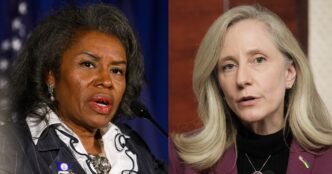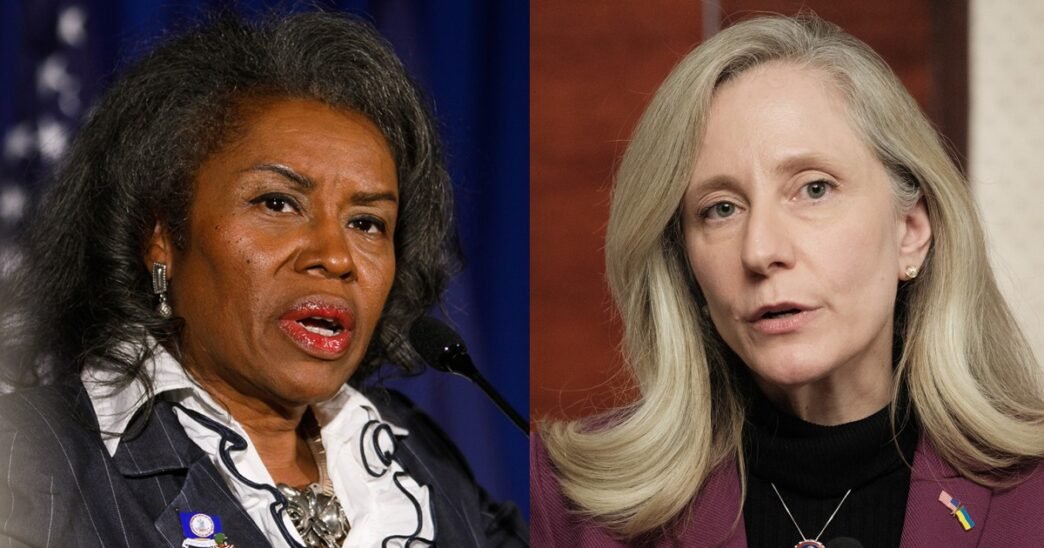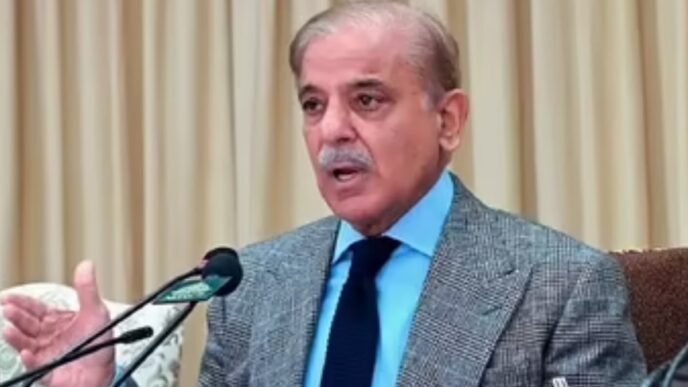Tuesday is prim day in Virginia — but the general election matchup for the commonwealth’s highest office is already set.
Democrat Abigail Spanberger, a former U.S. representative, and Republican Winsome Earle-Sears, the state’s lieutenant governor, have known for months that they would face off against each other in the race to succeed Republican Gov. Glenn Youngkin, since they were the only major-party candidates to qualify for the ballot.
One of them is guaranteed to make history by being elected Virginia’s first female governor. And they’ve already been running general election-focused campaigns for months, providing an early jump-start to one of just two governor’s races this year (the other is in New Jersey). Those elections will be early indicators of how voters are responding to President Donald Trump — and where the political winds are blowing ahead of the 2026 midterms.
Already, clear dividing lines have emerged from both campaigns, providing a map of how each candidate might carve out a path to winning Virginia’s top political job and navigating the politics of Trump’s second term.
Spanberger has focused heavily on economic and affordability issues, as well as her support for reproductive rights in a state that abortion-rights groups highlight as a rare spot in the South where abortion care remains widely accessible until viability. Spanberger’s campaign and allied groups have also, more broadly, attacked Earle-Sears over her conservative record on additional social issues, like contraception and marriage quality.
In addition, the Spanberger campaign and its allies have frequently hit Earle-Sears over what they call an indifferent response to Trump’s moves to shrink the federal workforce. Virginia is home to more than 340,000 federal workers.
Earle-Sears has, in large part, gone all-in on the accomplishments of the Youngkin administration, telling voters that electing her would mark a continuation of the popular (but term-limited) Republican governor’s record, including growing the private sector of the economy and standing up for “parents’ rights” in their children’s schools and classrooms.
Still, some Republicans have criticized Earle-Sears’ campaign, complaining that it lacks discipline and consistency.
In interviews, Republican operatives in the state and elsewhere have grumbled that the campaign has lacked a central message.
“I want to see her succeed. She’s just not running a good campaign,” said a GOP operative who has worked in Virginia, who was granted anonymity to speak candidly about the campaign.
“Her failures have allowed for Spanberger to just sit tight. But time is not on Earle-Sears’ side. It’s on Spanberger’s side, because of the makeup of the state and because of her money advantage,” the operative said.
But the operative and other Republicans NBC News spoke to have pointed out that it remains far too early to forecast a doomed ending for the Earle-Sears campaign, noting that the formal general election cycle is only just beginning and pointing out that Youngkin himself landed a close come-from-behind win four years ago.
Earle-Sears “has a great story,” and “she can be electrifying on the stump,” the operative said.
Earle-Sears campaign spokesperson Peyton Vogel said she would build on Youngkin’s record and keep Virginia “on the right track.”
“This race is a clear choice: Abigail Spanberger represents the Biden status quo — higher prices, soft-on-crime policies, and a war on parents’ rights,” Vogel said in an email. “Winsome is building a movement powered by real Virginians who want to keep Virginia on the right track.”
In an email, Spanberger campaign spokesperson Connor Joseph framed the race through the issues she has embraced as her main talking points: affordability, economic issues, reproductive freedom and taking on Trump.
Joseph said Spanberger is “relentlessly focused on making Virginia more affordable for their families, strengthening schools for their kids, and growing the Commonwealth’s economy for everyone.”
“In this moment marked by so much uncertainty, Virginia voters also know that Abigail will never be afraid to stand up to the Trump Administration’s attacks on Virginia jobs and Virginia’s economy — and they know that Abigail will be a Governor who always defends their fundamental freedoms, unlike her opponent,” he said.
How the campaigns are setting up their stories
Both candidates launched their first television ads in recent weeks, highlighting their biographies as they introduce themselves to voters.
Earle-Sears, a Jamaican immigrant, is a Marine veteran, electrician and businesswoman. She served in the House of Delegates and as vice president of the commonwealth’s Board of Education before she ran for lieutenant governor in 2021. She went on to become the state’s first female lieutenant governor and the first Black woman in statewide office.
Spanberger, a former CIA officer, flipped a Republican-held House seat in 2018 and established herself as a more moderate lawmaker, aligning with colleagues with national security backgrounds.
From Jan 1. through Tuesday, $3.7 million had been spent on ads in the race, according to AdImpact. The Spanberger campaign has spent $1.4 million, while the Earle-Sears campaign has spent $2.3 million.
That disparity, however, hasn’t been reflected in very early polling, which has shown Spanberger ahead. In a recent Roanoke College poll, 32% of respondents viewed Earle-Sears favorably, with 48% saying they had unfavorable views. Another 20% of respondents said they had no opinion of her. By contrast, 41% of respondents said they viewed Spanberger favorably, with 40% saying they viewed her unfavorably.
The numbers reflect the uphill climb Republicans had already faced in their quest to keep control of the governorship. Off-year governor’s elections tend to be bellwethers of the broader political environment — and the party in power in Washington. In 11 of the last 12 Virginia governor’s races, voters elected the candidate of the party out of power in the White House.












